 |
Research and Translating His
Knowledge to Stories |
�
Beau L'Amour:
Louis loved reading history, especially original documents and the odd sort of bits you would find only in book stores and libraries close to his area of interest. Sometimes I suspect he took on the life of a writer just to justify his interest in reading and history.
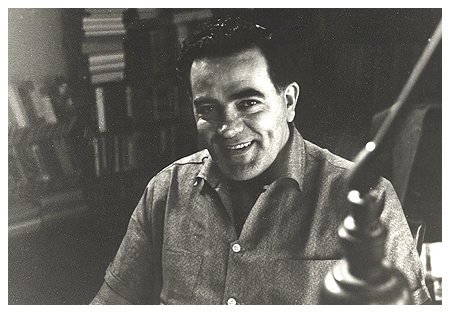
Louis also used the landscape to ground his stories, to make them tangible to him in some way that allowed him to feel comfortable writing them. He often wrote about places he had lived or visited and, if not, he was very good at studying maps and travel journals to get a feel for landscapes he had never visited.
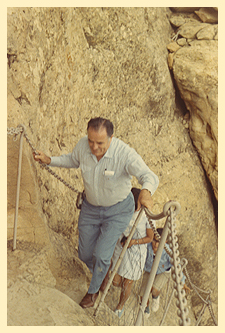 Another element that makes his work so convincing is that he was absolutely amazing at hinting to the reader what he wanted them to imagine, helping them create pictures in their minds that actually did not exist on the page. This cooperation with the audience is an aspect of great writing unappreciated by many of the English professors of the world. Writers of Louis’s era were usually quite good at it. It is a talent that requires doing less, not more!
Another element that makes his work so convincing is that he was absolutely amazing at hinting to the reader what he wanted them to imagine, helping them create pictures in their minds that actually did not exist on the page. This cooperation with the audience is an aspect of great writing unappreciated by many of the English professors of the world. Writers of Louis’s era were usually quite good at it. It is a talent that requires doing less, not more!
All that said, far too much has been made out of Louis L’Amour’s supposed historical accuracy. It has been blown completely out of proportion and one of the guilty parties was Louis himself.
It all started with Louis liking to get the landscape right. He did this more as a tool to help him visualize the story rather than being accurate to satisfy a reader. At the time he started doing it, few western writers really cared about history and the fans were similarly disinterested … you can tell by looking at many old western movies, the costumes are mostly “western wear” from the time when the films were made!
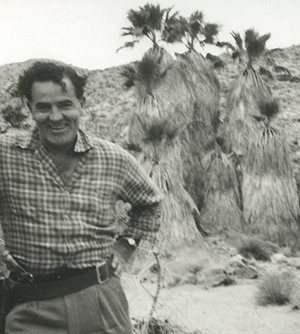
Louis Near La Quinta, CA the location
for the novel "The Lonesome Gods " |
After specifically writing about places he knew for a few years, Louis started getting fan mail commending him for that element. This made him try harder. Soon he was telling reporters and publicists that he made it a point to get the terrain right … and he did. Unfortunately, this claim slowly morphed into another claim, at first made by others (like his publisher) of some sort of complete historical authenticity. Soon Louis was occasionally going along with his own press releases.
Now, he did do a lot of research. He did care about getting details right … but he didn’t attack it like scientist or a lawyer. He didn’t let research and accuracy get in the way of telling a good story. And, most important to the point I am making, he didn’t slow the writing process down by checking his facts religiously. If he remembered something accurately, and he had a fabulous memory, he would put it in … but he rarely checked it. He didn’t get too much wrong … and he was good at avoiding getting pinned down. Basically, when he started writing a story he didn’t let anything stop him. He made a few glaring errors in his career (I’m not going to tell you what they were!) but he was an entertainer, not a historian.
The claim of absolute academic level accuracy is a case of cut and paste journalism and public relations run amuck. To let this myth go on and on is just to give his detractors more and more ammunition. Authenticity was just something that he was reasonably good at … but the claims got out of control.
What he did have, a fundamental no one could make a claim against, was first hand knowledge of the people. He had met a good many old west characters as a young man. He captured a tone that, if a detail slipped here or there, was based in personal experience.
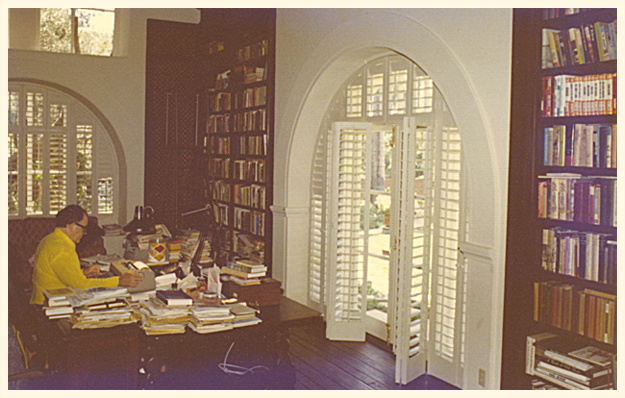
Twelve feet high and eight feet wide each set of bookshelves is hinged
and swings open from the center to reveal a second set of shelves in back.
The wall behind Louis has two similar sets of double layered bookshelves.
Dad did have an extensive library but it wasn’t all about the west by any means. He just liked learning. He had everything from “name your baby” books to technical journals from NASA. He had a huge collection of topographic maps. Many of them from the earliest days that they were published. Besides actually going to the location where he would want to set a story, these were his secret sauce. Old topos have a good deal of information on them that is left out of the modern ones, Indian ruins, old roads, countryside now covered by cities. Dad had a bit of artillery training in the Army, he had originally been attached to a Tank Destroyer unit, and he was good at reading a map. He had also, and this should not be underappreciated, spent a lot of his life comparing maps to the actual landscape in them. He knew how to translate a map into a visual description of the countryside.
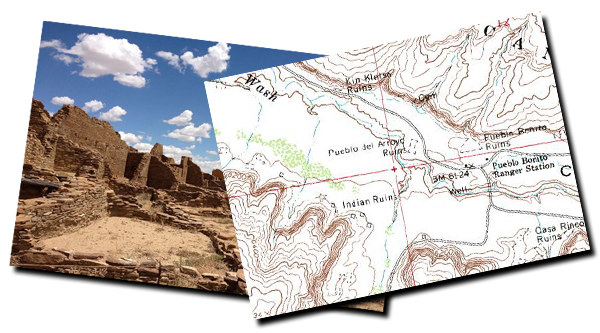
Dad would often tell reporters that he had the biographies of a large number of gunfighters in his personal library … it’s a quote that many have remembered down the years. This is one of those things that tended to get exaggerated by fans. Many imagined thousands of file or pamphlets or research papers in neat little rows. What Dad meant was that he had a lot of books on the West and in them were the details of a lot of these guys' lives. Any major library probably has a similar amount of information.